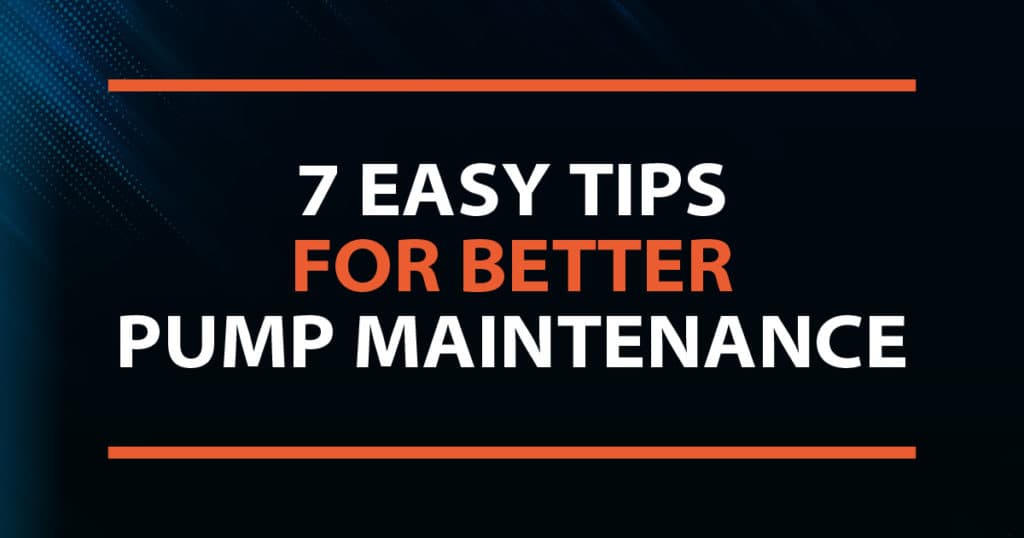If you want to keep your pump system running at optimum performance and efficiency, you need to perform maintenance. Maintenance entails equipment inspections, testing, minor repairs, settings adjustments, cleaning and replacing worn seals, hoses, bearings, and other standard part audits. We consider this “preventative maintenance,” as it prevents considerable damage and breakdowns that will cost you significant production. Proper maintenance also keeps your pump equipment lasting longer.
How do you develop and follow the best pump maintenance plan? These are the seven steps we recommend taking for better pump maintenance.
- Set Maintenance Frequency
The first step in your plan is to determine how frequently you need to inspect your pump system and perform common maintenance tasks. Consult the owner’s manuals and manufacturer guidelines to create a consistent schedule that all operators can understand and implement. Over time, you may adjust your frequency as you get to know your pump system. Setting a clear schedule keeps everyone on the same page.
- Constantly Observe Your Pump System
Getting to know your pump system comes through careful observation of your equipment. Experienced operators know what to look for, allowing you to make minor adjustments as you go. More importantly, you’ll know when something isn’t right and when it’s time for an emergency inspection. Leaks, unusual sounds, vibrations, odd odors, and performance loss are all common issues you’ll notice and resolve quickly if you are in-tune with your pump system.
- Implement Safety Protocols
Anyone operating the pump or working near it should know the pump system’s safety protocols, which starts with proper training and education. In addition, safety is critical when inspecting, maintaining, or repairing the pump equipment. Shutting machines down and properly isolating hydraulic and electric systems are two ways to practice appropriate safety measures.
- Perform Routine Mechanical Inspections
The basis for your maintenance schedule should be periodic mechanical inspections. According to your calendar, these should happen without fail, whether performed daily, weekly, monthly, quarterly, or annually. Any fixes or issues in between scheduled inspections shouldn’t affect the standard equipment inspections. Here are a few key things you can look for:
• Check security of mounting points
• Inspect mechanical seal(s) and packing
• Inspect pump flanges for leaks
• Inspect couplings
• Inspect and clean filters
• Check for leaks
• Check lubrication (both quantity and quality)
- Proper Lubrication
Lubrication is generally the top priority with any preventative maintenance for your pump equipment. The motor and pump bearing always need proper lubrication. If not, problems will arise, damaging the machinery. Increased bearing damage often happens because of over-greasing, not under-greasing, so using the correct lubrication and the precise amount is vital..
- Drive System Inspection
Next, you will want to inspect the drive system, whether it’s an electrical motor, fuel motor, magnetic drive, or air compression system. Check to make sure all the terminations are tight and inspect the motor vents and windings, and clean as needed. Finally, test the starter to see if there is any arcing or overheating. We recommend using a megohmmeter on the windings, which will allow you to check for insulation failure.
- Replace Worn Components
Carefully inspect the seals, gaskets and hoses for wear or damage. Using a temporary rubber assembly lubricant is also a good idea, as it ensures a tight fit and will prevent slipping and leaking when the pump is fired back up.
To get the best performance and longevity from your pump system, proactively take the steps recommended, such as scheduled maintenance and any potential repairs in between. For help with all your pump maintenance and repair needs, contact DXP Pacific today. Our pump experts know what it takes to keep your equipment running right and lasting longer.

